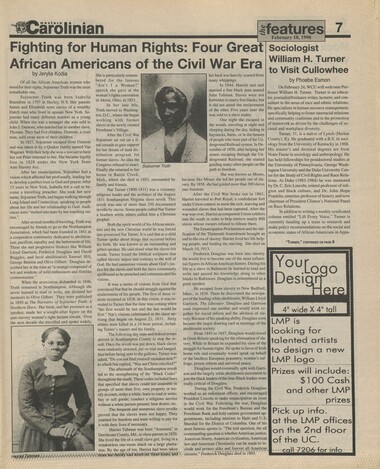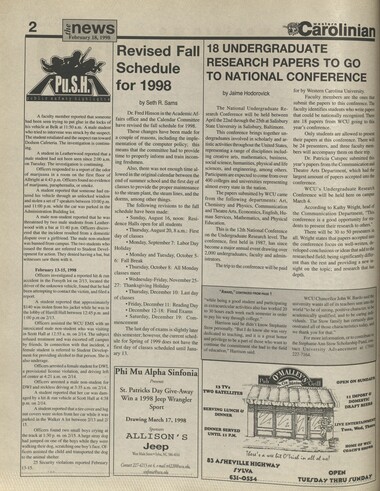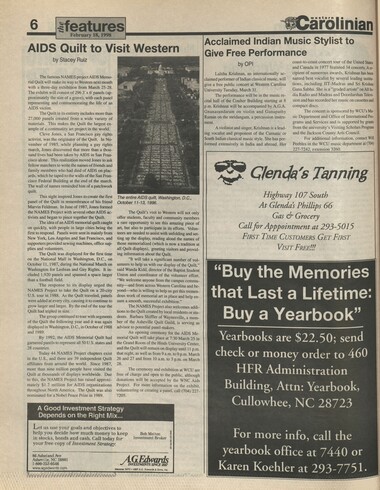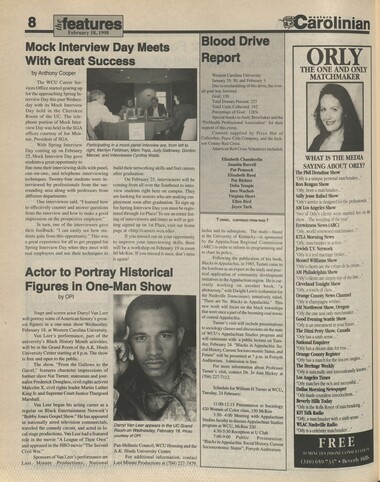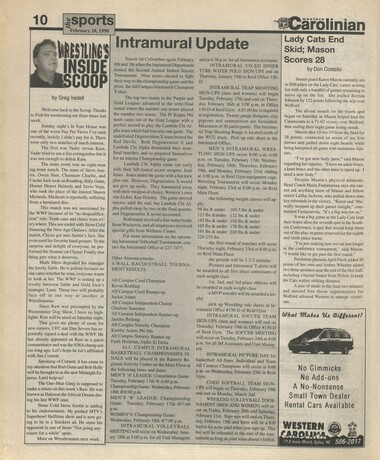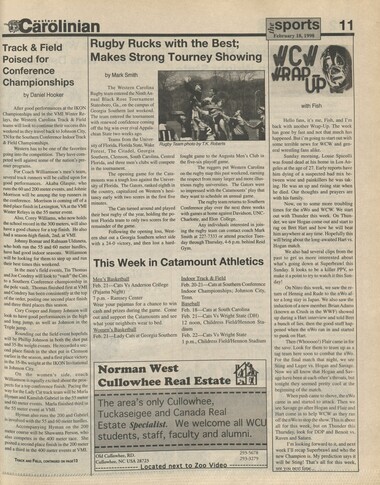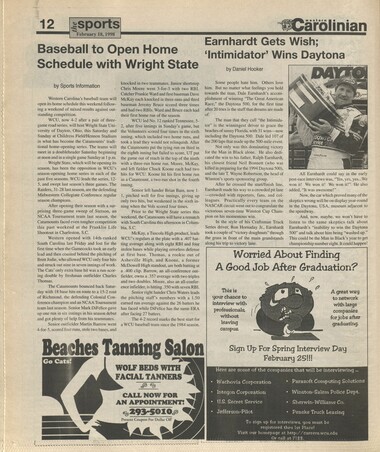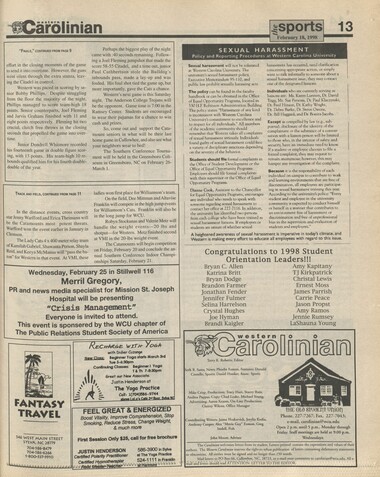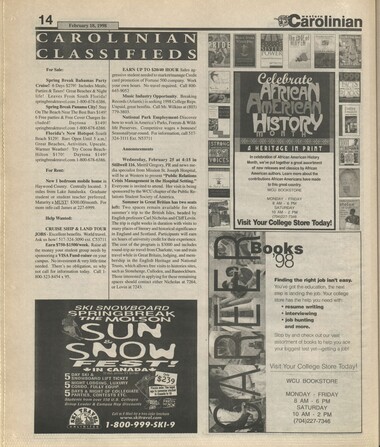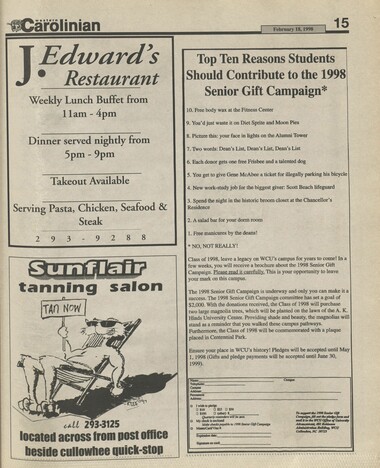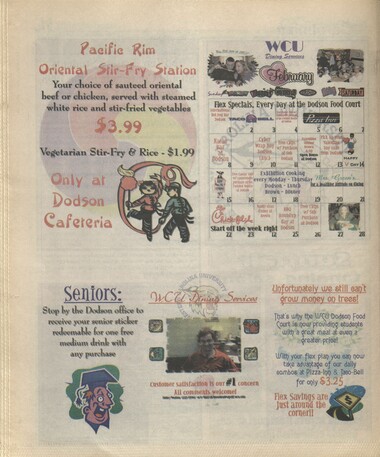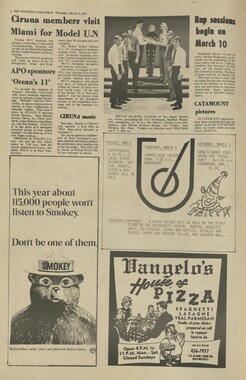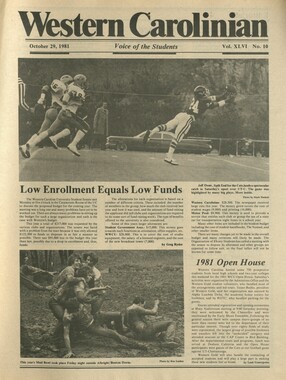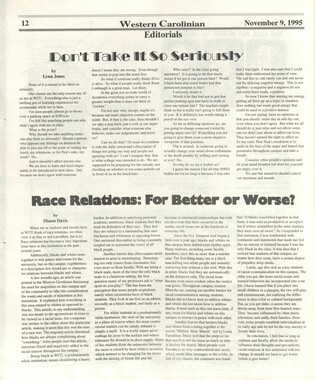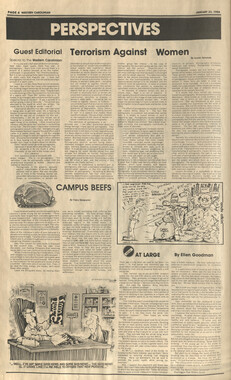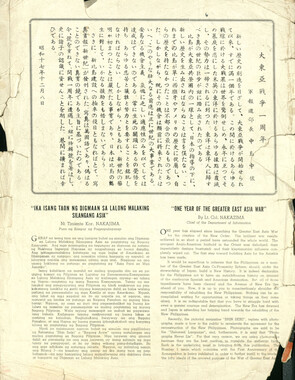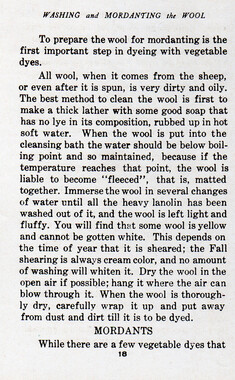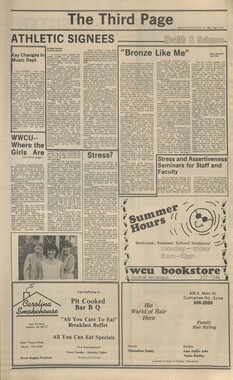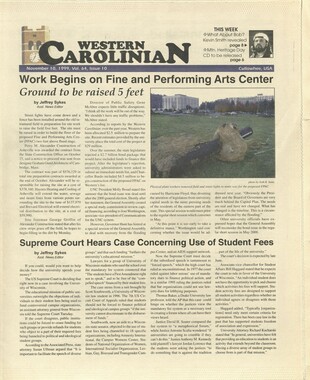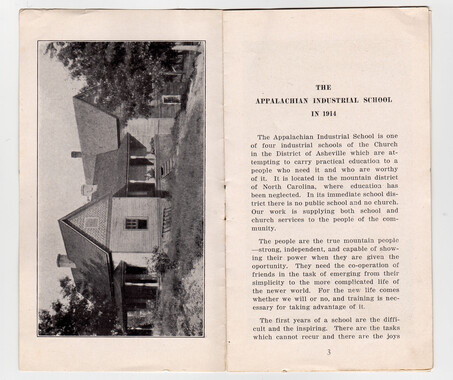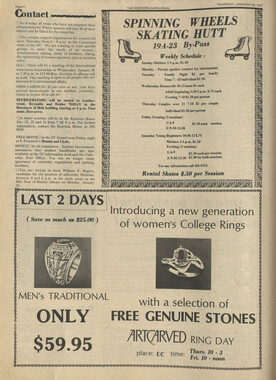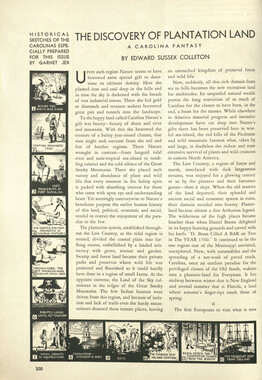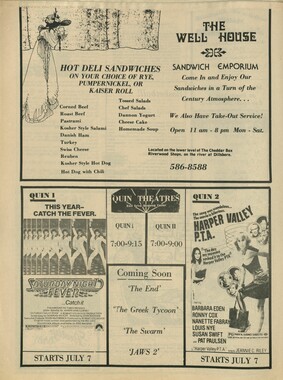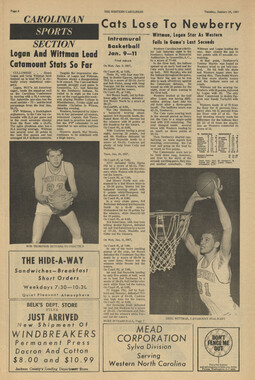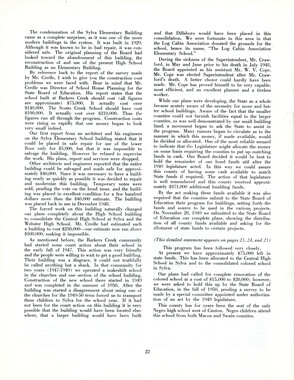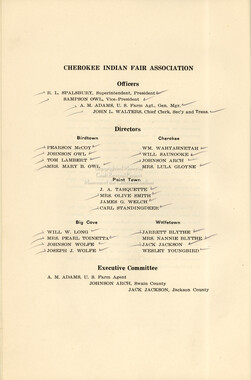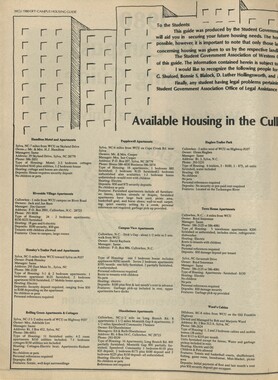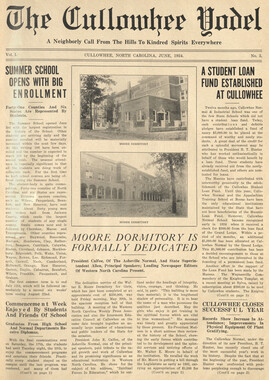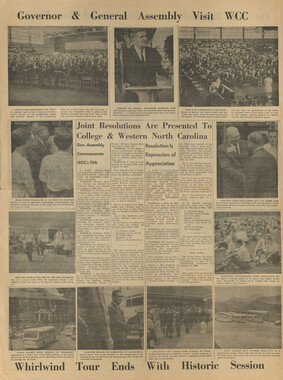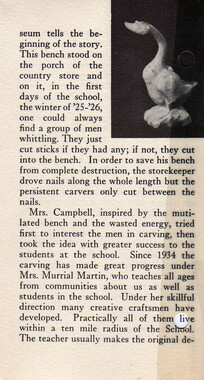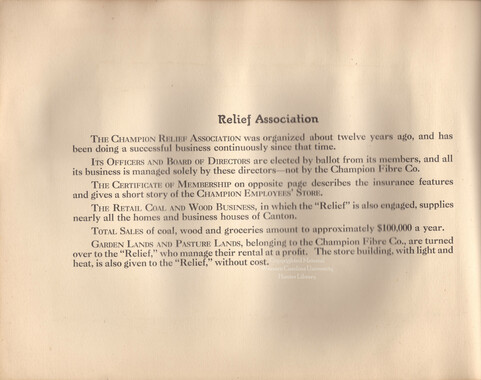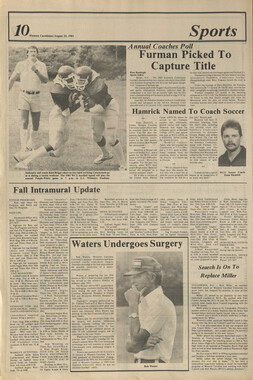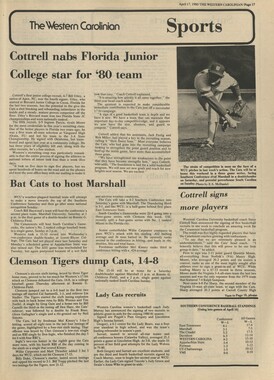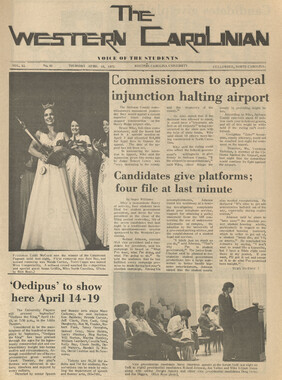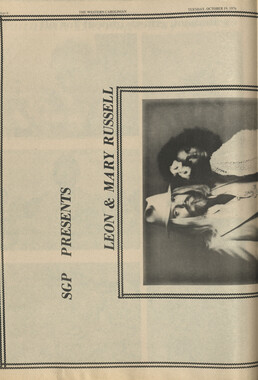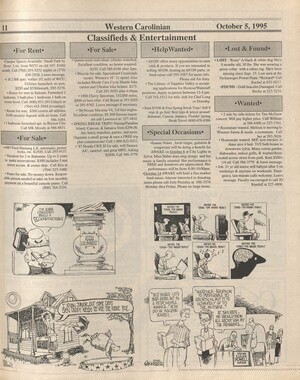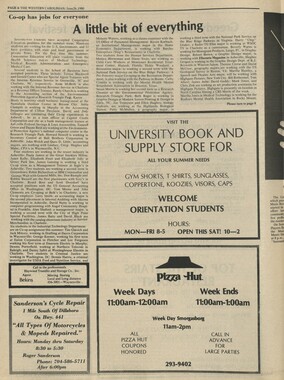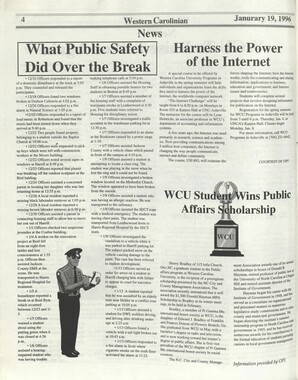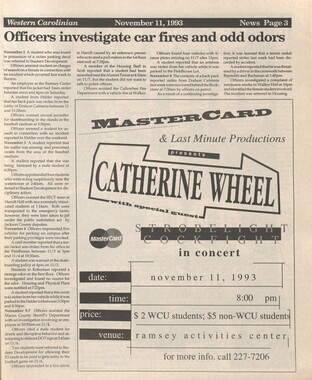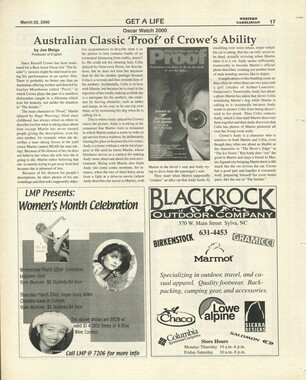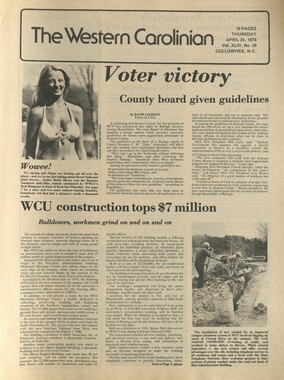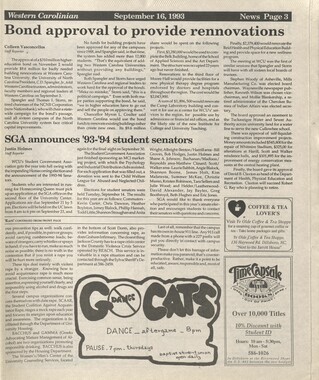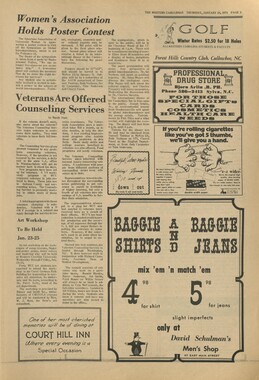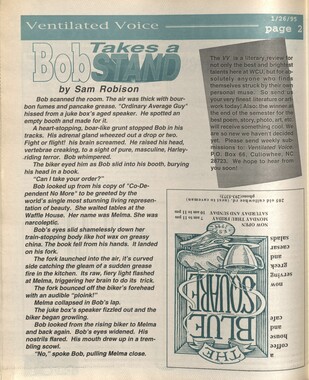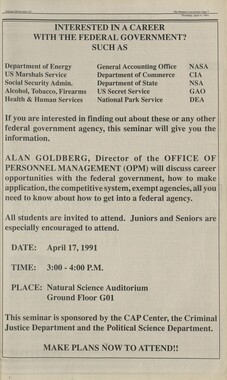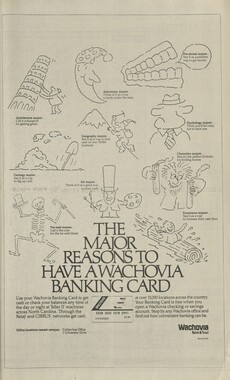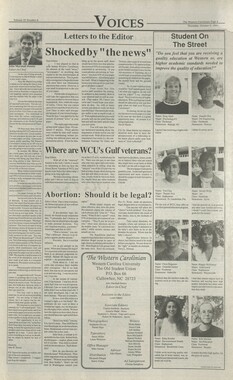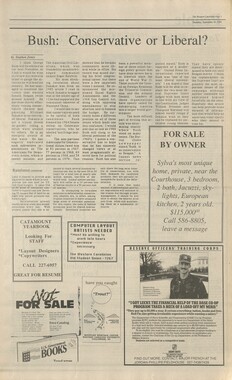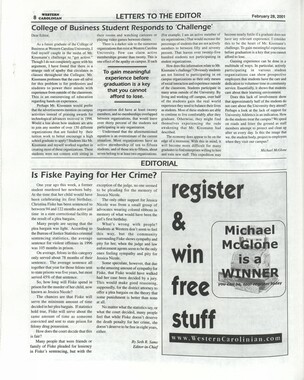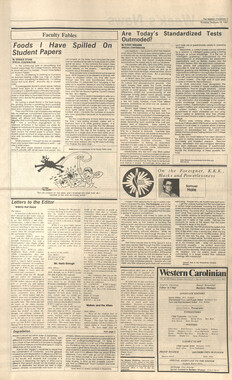Western Carolina University (20)
View all
- Canton Champion Fibre Company (2308)
- Cherokee Traditions (293)
- Civil War in Southern Appalachia (165)
- Craft Revival (1942)
- Great Smoky Mountains - A Park for America (2767)
- Highlights from Western Carolina University (430)
- Horace Kephart (941)
- Journeys Through Jackson (154)
- LGBTQIA+ Archive of Jackson County (26)
- Oral Histories of Western North Carolina (314)
- Picturing Appalachia (6772)
- Stories of Mountain Folk (413)
- Travel Western North Carolina (160)
- Western Carolina University Fine Art Museum Vitreograph Collection (129)
- Western Carolina University Herbarium (92)
- Western Carolina University: Making Memories (708)
- Western Carolina University Publications (2283)
- Western Carolina University Restricted Electronic Theses and Dissertations (146)
- Western North Carolina Regional Maps (71)
- World War II in Southern Appalachia (131)
University of North Carolina Asheville (6)
View all
- Western Carolina College (199)
- Western Carolina Teachers College (239)
- Western Carolina University (1792)
- Allanstand Cottage Industries (0)
- Appalachian National Park Association (0)
- Bennett, Kelly, 1890-1974 (0)
- Berry, Walter (0)
- Brasstown Carvers (0)
- Cain, Doreyl Ammons (0)
- Carver, George Washington, 1864?-1943 (0)
- Cathey, Joseph, 1803-1874 (0)
- Champion Fibre Company (0)
- Champion Paper and Fibre Company (0)
- Cherokee Indian Fair Association (0)
- Cherokee Language Program (0)
- Crittenden, Lorraine (0)
- Crowe, Amanda (0)
- Edmonston, Thomas Benton, 1842-1907 (0)
- Ensley, A. L. (Abraham Lincoln), 1865-1948 (0)
- Fromer, Irving Rhodes, 1913-1994 (0)
- George Butz (BFS 1907) (0)
- Goodrich, Frances Louisa (0)
- Grant, George Alexander, 1891-1964 (0)
- Heard, Marian Gladys (0)
- Kephart, Calvin, 1883-1969 (0)
- Kephart, Horace, 1862-1931 (0)
- Kephart, Laura, 1862-1954 (0)
- Laney, Gideon Thomas, 1889-1976 (0)
- Masa, George, 1881-1933 (0)
- McElhinney, William Julian, 1896-1953 (0)
- Niggli, Josephina, 1910-1983 (0)
- North Carolina Park Commission (0)
- Osborne, Kezia Stradley (0)
- Owens, Samuel Robert, 1918-1995 (0)
- Penland Weavers and Potters (0)
- Rhodes, Judy (0)
- Roberts, Vivienne (0)
- Roth, Albert, 1890-1974 (0)
- Schenck, Carl Alwin, 1868-1955 (0)
- Sherrill's Photography Studio (0)
- Smith, Edward Clark (0)
- Southern Highland Handicraft Guild (0)
- Southern Highlanders, Inc. (0)
- Stalcup, Jesse Bryson (0)
- Stearns, I. K. (0)
- Thompson, James Edward, 1880-1976 (0)
- United States. Indian Arts and Crafts Board (0)
- USFS (0)
- Vance, Zebulon Baird, 1830-1894 (0)
- Weaver, Zebulon, 1872-1948 (0)
- Western Carolina University. Mountain Heritage Center (0)
- Whitman, Walt, 1819-1892 (0)
- Wilburn, Hiram Coleman, 1880-1967 (0)
- Williams, Isadora (0)
- 1920s (57)
- 1930s (69)
- 1940s (114)
- 1950s (66)
- 1960s (314)
- 1970s (599)
- 1980s (406)
- 1990s (379)
- 2000s (195)
- 2010s (83)
- 1600s (0)
- 1700s (0)
- 1800s (0)
- 1810s (0)
- 1820s (0)
- 1830s (0)
- 1840s (0)
- 1850s (0)
- 1860s (0)
- 1870s (0)
- 1880s (0)
- 1890s (0)
- 1900s (0)
- 1910s (0)
- 2020s (0)
- Jackson County (N.C.) (2282)
- Appalachian Region, Southern (0)
- Asheville (N.C.) (0)
- Avery County (N.C.) (0)
- Blount County (Tenn.) (0)
- Buncombe County (N.C.) (0)
- Cherokee County (N.C.) (0)
- Clay County (N.C.) (0)
- Graham County (N.C.) (0)
- Great Smoky Mountains National Park (N.C. and Tenn.) (0)
- Haywood County (N.C.) (0)
- Henderson County (N.C.) (0)
- Knox County (Tenn.) (0)
- Knoxville (Tenn.) (0)
- Lake Santeetlah (N.C.) (0)
- Macon County (N.C.) (0)
- Madison County (N.C.) (0)
- McDowell County (N.C.) (0)
- Mitchell County (N.C.) (0)
- Polk County (N.C.) (0)
- Qualla Boundary (0)
- Rutherford County (N.C.) (0)
- Swain County (N.C.) (0)
- Transylvania County (N.C.) (0)
- Watauga County (N.C.) (0)
- Waynesville (N.C.) (0)
- Yancey County (N.C.) (0)
- Newsletters (510)
- Publications (documents) (1773)
- Aerial Photographs (0)
- Aerial Views (0)
- Albums (books) (0)
- Articles (0)
- Artifacts (object Genre) (0)
- Bibliographies (0)
- Biography (general Genre) (0)
- Cards (information Artifacts) (0)
- Clippings (information Artifacts) (0)
- Crafts (art Genres) (0)
- Depictions (visual Works) (0)
- Design Drawings (0)
- Drawings (visual Works) (0)
- Envelopes (0)
- Facsimiles (reproductions) (0)
- Fiction (general Genre) (0)
- Financial Records (0)
- Fliers (printed Matter) (0)
- Glass Plate Negatives (0)
- Guidebooks (0)
- Internegatives (0)
- Interviews (0)
- Land Surveys (0)
- Letters (correspondence) (0)
- Manuscripts (documents) (0)
- Maps (documents) (0)
- Memorandums (0)
- Minutes (administrative Records) (0)
- Negatives (photographs) (0)
- Newspapers (0)
- Occupation Currency (0)
- Paintings (visual Works) (0)
- Pen And Ink Drawings (0)
- Periodicals (0)
- Personal Narratives (0)
- Photographs (0)
- Plans (maps) (0)
- Poetry (0)
- Portraits (0)
- Postcards (0)
- Programs (documents) (0)
- Questionnaires (0)
- Scrapbooks (0)
- Sheet Music (0)
- Slides (photographs) (0)
- Songs (musical Compositions) (0)
- Sound Recordings (0)
- Specimens (0)
- Speeches (documents) (0)
- Text Messages (0)
- Tintypes (photographs) (0)
- Transcripts (0)
- Video Recordings (physical Artifacts) (0)
- Vitreographs (0)
- The Reporter, Western Carolina University (510)
- WCU Students Newspapers Collection (1744)
- A.L. Ensley Collection (0)
- Appalachian Industrial School Records (0)
- Appalachian National Park Association Records (0)
- Axley-Meroney Collection (0)
- Bayard Wootten Photograph Collection (0)
- Bethel Rural Community Organization Collection (0)
- Blumer Collection (0)
- C.W. Slagle Collection (0)
- Canton Area Historical Museum (0)
- Carlos C. Campbell Collection (0)
- Cataloochee History Project (0)
- Cherokee Studies Collection (0)
- Daisy Dame Photograph Album (0)
- Daniel Boone VI Collection (0)
- Doris Ulmann Photograph Collection (0)
- Elizabeth H. Lasley Collection (0)
- Elizabeth Woolworth Szold Fleharty Collection (0)
- Frank Fry Collection (0)
- George Masa Collection (0)
- Gideon Laney Collection (0)
- Hazel Scarborough Collection (0)
- Hiram C. Wilburn Papers (0)
- Historic Photographs Collection (0)
- Horace Kephart Collection (0)
- Humbard Collection (0)
- Hunter and Weaver Families Collection (0)
- I. D. Blumenthal Collection (0)
- Isadora Williams Collection (0)
- Jesse Bryson Stalcup Collection (0)
- Jim Thompson Collection (0)
- John B. Battle Collection (0)
- John C. Campbell Folk School Records (0)
- John Parris Collection (0)
- Judaculla Rock project (0)
- Kelly Bennett Collection (0)
- Love Family Papers (0)
- Major Wiley Parris Civil War Letters (0)
- Map Collection (0)
- McFee-Misemer Civil War Letters (0)
- Mountain Heritage Center Collection (0)
- Norburn - Robertson - Thomson Families Collection (0)
- Pauline Hood Collection (0)
- Pre-Guild Collection (0)
- Qualla Arts and Crafts Mutual Collection (0)
- R.A. Romanes Collection (0)
- Rosser H. Taylor Collection (0)
- Samuel Robert Owens Collection (0)
- Sara Madison Collection (0)
- Sherrill Studio Photo Collection (0)
- Smoky Mountains Hiking Club Collection (0)
- Stories of Mountain Folk - Radio Programs (0)
- Venoy and Elizabeth Reed Collection (0)
- WCU Gender and Sexuality Oral History Project (0)
- WCU Mountain Heritage Center Oral Histories (0)
- WCU Oral History Collection - Mountain People, Mountain Lives (0)
- Western North Carolina Tomorrow Black Oral History Project (0)
- William Williams Stringfield Collection (0)
- Zebulon Weaver Collection (0)
- College student newspapers and periodicals (1769)
- African Americans (0)
- Appalachian Trail (0)
- Artisans (0)
- Cherokee art (0)
- Cherokee artists -- North Carolina (0)
- Cherokee language (0)
- Cherokee pottery (0)
- Cherokee women (0)
- Church buildings (0)
- Civilian Conservation Corps (U.S.) (0)
- Dams (0)
- Dance (0)
- Education (0)
- Floods (0)
- Folk music (0)
- Forced removal, 1813-1903 (0)
- Forest conservation (0)
- Forests and forestry (0)
- Gender nonconformity (0)
- Great Smoky Mountains National Park (N.C. and Tenn.) (0)
- Hunting (0)
- Landscape photography (0)
- Logging (0)
- Maps (0)
- Mines and mineral resources (0)
- North Carolina -- Maps (0)
- Paper industry (0)
- Postcards (0)
- Pottery (0)
- Railroad trains (0)
- Rural electrification -- North Carolina, Western (0)
- School integration -- Southern States (0)
- Segregation -- North Carolina, Western (0)
- Slavery (0)
- Sports (0)
- Storytelling (0)
- Waterfalls -- Great Smoky Mountains (N.C. and Tenn.) (0)
- Weaving -- Appalachian Region, Southern (0)
- Wood-carving -- Appalachian Region, Southern (0)
- World War, 1939-1945 (0)
- Text (2283)
- MovingImage (0)
- Sound (0)
- StillImage (0)
Western Carolinian Volume 62 (63) Number 21 (22)
Item
Item’s are ‘child’ level descriptions to ‘parent’ objects, (e.g. one page of a whole book).
-
-
western ■ • • arolinian ^features February 18,1998 Fighting for Human Rights: Four Great African Americans of the Civil War Era by Jerylia Kodia Of all the African American women who stood for their rights, Sojourner Truth was the most remarkable one. Sojourner Truth was born Isabella Baumfree in 1797 in Hurley, NY Her parents James and Elizabeth were slaves of a wealthy Dutch man who lived in upstate New York. Sojourner had many different masters as a young child. When she was a teenager she was sold to John J. Dumont, who married her to another slave, Thomas. They had five children. Dumont, a cruel man, sold away most of their children. In 1827, Sojourner escaped from Dumont and was taken in by a Quaker family named Van Wagener. With their help she won a lawsuit to have her son Peter returned to her. She became legally free in 1828 under the New York State Anti-Slavery Act. After her emancipation, Sojourner had a vision which affected her profoundly, leading her to develop a perfect trust in God and prayer. After 15 years in New York, Isabella felt a call to become a travelling preacher. She took her new name, Sojourner Truth, and began walking through Long Island and Connecticut, speaking to people about her life and her relationship to God. Audiences were "melted into tears by her touching stories." After several months of traveling, Truth was encouraged by friends to go to the Northampton Association, which had been founded in 1841 as a cooperative community dedicated to abolitionism, pacifism, equality and the betterment of life. There she met progressive thinkers like William Lloyd Garrison, Frederick Douglass and David Ruggles, and local abolitionists Samuel Hill, George Benson and Olive Gilbert. Douglass described her at the time as "a strange compound of wit and wisdom, of wild enthusiasm and flintlike commonsense." When the association disbanded in 1846, Truth remained in Northampton. Although she never learned to read or write, she dictated her memoirs to Olive Gilbert. They were published in 1850 as The Narrative of Sojourner Truth: A Northern Slave. Her book, and her presence as a speaker, made her a sought-after figure on the anti-slavery woman's right lecture circuit. Over the next decade she travelled and spoke widely. Sojourner Truth She is particularly remembered for the famous "Ain't I a Woman?" speech she gave at the woman's rights convention in Akron, Ohio, in 1851. In her late 60s, Truth moved to Washington, D.C., where she began working with former slaves in the newly created Freedman's Village. After the Civil War Sojourner set out on a final crusade to gain support for her dream of land distribution program for former slaves. An idea the Congress refused to enact. Finally she returned to her home in Battle Creek, Mich., where she died in 1883, surrounded by family and friends. Nat Turner (1800-1831) was a visionary religious leader and the architect of the August 1831 Southampton Virginia slave revolt. This revolt was one of more than 250 documented revolts by slaves. Some people called Nat Turner a heathen while others called him a Christian prophet. Both the spirit world of his African ancestors and the new Christian world he was forced into possessed Nat Turner. It is said that as a child Turner spoke about things that occurred before his birth. He was known as an outstanding and gifted speaker. He said aloud what the slaves felt inside. Turner found the biblical scriptures that called slavery unjust and contrary to the will of God. He had numerous visions about God's justice for the slaves and held the slave community spellbound as he preached and communicated his visions. It was a series of visions from God that convinced Nat that he should struggle against the enslavement of his people. The first of these visions occurred in 1828. In this vision, it was revealed to Turner that the time was coming when "the first would be last and the last would be first." Nat's visions culminated in the slave uprising that began on August 21, 1831. Sixty whites were killed in a 24-hour period, including Turner's master and his family. The following day state and federal troops arrived in Southampton County to stop the revolt. Once the revolt was put down, black slaves were randomly arrested, put on trial and hanged. Just before being sent to the gallows, Turner was asked, "Do you not find yourself mistaken now?" to which Nat replied, "Was not Christ crucified?" The aftermath of the Southampton revolt led to the strengthening of the "Black Codes" throughout the south. These codes included laws that specified that slaves could not assemble in groups of more than five; own property or testify in court; strike a white; learn to read or write; buy or sell goods; conduct a religious service without a white person present; beat drums; etc. The frequent and numerous slave revolts proved that the slaves were not happy. They yearned for freedom and were willing to pay for it with their lives if necessary. Harriet Tubman was born "Araminta" in Dorchester County, Md., to slave parents in 1820. She lived the life of a small slave girl, living in a windowless one-room shack on a large planta- on. By the age of ten, Harriet had been taken Hi^^f),-', v, v ,\ V.;. v . V. '•, Sfato'Var.h'm'Vl'y '•and. 'hiVd*b^''tffr8*;rlrfi>^>rtrJ ) her back was heavily scarred from many whippings. In 1844, Harriet met and married a free black man named John Tubman. Slaves were not forbidden to marry free blacks, but it did not annul the enslavement of the other. Five years later she was sold to a slave trader. One night she escaped in the woods, traveling at night and sleeping during the day, hiding in haystacks, barns, or in the houses of people who were part of the Underground Railroad system. In December of 1850, after helping her sisters escaping through the Underground Railroad, she started guiding many other people on the path to freedom. She was known as Moses, because like Moses she led her people out of slavery. By 1858, she had guided more than 300 slaves into freedom. After the Civil War broke out in 1861, Harriet traveled to Port Royal, a confederate fort under Union control, to nurse the sick, starving and wounded slaves that had been captured. After the war was over, Harriet accompanied Union soldiers into the south in order to help retrieve nearly 800 slaves whose owners refused to release them. The Emancipation Proclamation and the ratification of the Thirteenth Amendment brought an end to the era of slavery. Harriet lived her life helping people, and feeding the starving. She died on March 10, 1913. Frederick Douglass was born into slavery. He would live to become one of the most influential figures in African American history. During his life as a slave in Baltimore he learned to read and write and passed his knowledge along to other blacks in Baltimore. Douglass is remembered as a great speaker. He escaped from slavery to New Bedford, Mass., in 1838. There he discovered the newspaper of the leading white abolitionist, William Lloyd Garrison, The Liberator. Douglass and Garrison soon impressed one another and would work together for social reform and the aboliion of slavery. Because of his speaking ability, Douglass soon became the major drawing card at meetings of the abolitionist society. From 1845 to 1847, Douglass would travel in Great Britain speaking for the elimination of slavery. While in Britain he expanded his view of the struggle for human rights. He spoke in favor of Irish home rule and eventually would speak on behalf of the landless European peasantry, women's suffrage, prison reform and universal peace. Douglass would eventually split with Garrison and the largely white abolitionist movement to join the black leaders of the time.Black leaders were really critical of Douglass. During the Civil War, Frederick Douglass worked as an enlistment officer, and encouraged President Lincoln to make emancipation an issue in the Civil War. Following the war, Douglass would work for the Freedman's Bureau and the Freedman Bank and hold various governemnt appointments, including minister to Haiti and U.S. Marshal for the District of Columbia. One of his most famous quotes is: "The real question, the all commanding question is whether American justice, American liberty, American civilization, American law and American Christianity can be made to include and protect alike and forever all American citizens." Frederick Douglass died in 1895. Sociologist William H. Turner to Visit Cullowhee by Phoebe Esmon On February 24, WCU will welcome Professor William H. Turner. Turner is an educator, journalist/freelance writer, lecturer, and consultant in the areas of race and ethnic relations. He specializes in human resource management, specifically helping to foster interracial relations and community coalitions and in the promotion of teamwork as driven by the challenges of societal and workplace diversity. Turner, 51, is a native of Lynch (Harlan County), Ky. He graduated with a B.S. in sociology from the University of Kentucky in 1968. His master's and doctoral degrees are from Notre Dame in sociology and anthropology. He has held fellowships for postdoctoral studies at the University of Pennsylvania, George Washington University and the Duke University Center for the Study of Civil Rights and Race Relations. At Duke (1983-1984) he was mentored by Dr. C. Eric Lincoln, retired professor of religion and black culture, and Dr. John Hope Franklin, emeritus professor of history and now chairman of President Clinton's National Panel on Race Relations. In addition to writing a weekly syndicated column entitled "Lift Every Voice," Turner is currently heading up a team to research and make policy recommendations on the social and economic status of African Americans in Appa- "TURNER," CONTINUED ON PAGE 8 LMP is looking for tatented artists to design a new LMP logo Prizes will include: $ 100 Cash and other LMP prizes Pick up info, at the LMP offices on the 2nd floor of the UC. ca.l 72Q6 for info
Object
Object’s are ‘parent’ level descriptions to ‘children’ items, (e.g. a book with pages).
-
The Western Carolinian is Western Carolina University's student-run newspaper. The paper was published as the Cullowhee Yodel from 1924 to 1931 before changing its name to The Western Carolinian in 1933.
-
